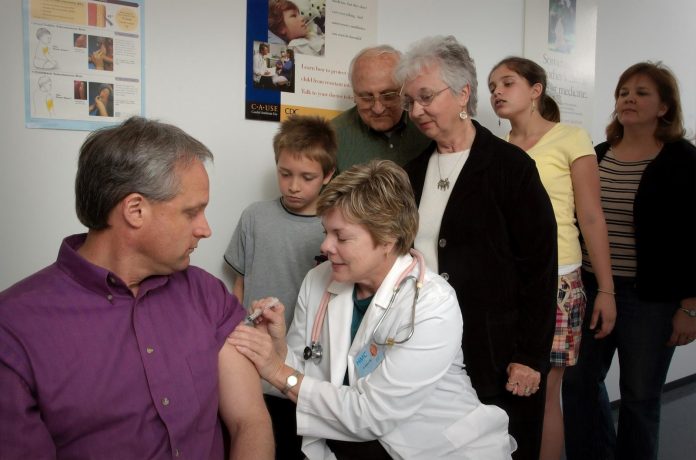Source: https://unsplash.com/photos/OJF3lYjC6vg
In the light of recent events, there’s just too much talk about vaccines, their usefulness and alleged harmfulness. Now, the anti-vax people, are trying to portray this new vaccination as something new and unprecedented while completely ignoring the fact that people have been taking flu shots every single year for quite a while now. This was especially a common practice amongst senior citizens and risky groups, seeing as how even the common flu can turn out to be quite dangerous in their case. So, due to the fact that this topic is, once again, quite hot, it’s vital that we discuss the importance of flu shots for seniors.
1. What is flu and why is it so dangerous?
The simplest way to explain flu is to say that it’s a contagious respiratory illness caused by an influenza virus. Its symptoms are coughing, fever (not present in every instance of flu), headache, sore throat, fatigue, runny nose and muscle aches. While, for the majority of people, flu seems like something quite harmless, for some people, it can cause severe lung inflammation and cause respiratory failure. The reason why this is especially dangerous for the elderly is that seniors tend to have a somewhat weaker immune system.
2. Getting a flu shot
Flu shots are a necessity in modern society and the most recent pandemic may just be the best example of how quickly a respiratory disease can spread in the modern world. Seeing as how it’s something essential, vaccines are seldom expensive. The costs of vaccines can be justified by their complex development process, their manufacturing process and the fact that they have to be kept in safe conditions in order to be safe to use. This means that a lab or a medical facility that works with vaccines needs to have a quality pharmacy fridge in order to store these vaccines.
Source: https://unsplash.com/photos/2rrsfMN4hn8
3. What happens after you get vaccinated?
The timing of vaccination is just as important. This is because it will take about two weeks to build up immunity to the disease that you were vaccinated against. So, getting vaccinated after the flu season starts might provide you with suboptimal protection against the virus in question. Instead, you should strategize and try to get a vaccine as soon as it’s available. Most commonly, this takes place in early October. This way, you can build up the immunity before the full swing of that year’s flu epidemic kicks in and be protected from the worst. Being out on the lookout can make a world of difference.
4. Who shouldn’t get this vaccine?
There are also some types of people who shouldn’t get the vaccine. These are people who had a severe reaction to the previous dose or people who are receiving checkpoint inhibitors as a cancer treatment. Also, people with a severe oculo-respiratory syndrome or developed Guillain-Barré syndrome. Still, even though they cannot receive this vaccine themselves, these people are protected if enough of their peers are vaccinated. This is the so-called herd immunity, that has often been misinterpreted and miss-portrayed in the previous year.
5. What should you be careful of?
One of the dangers of vaccination is the fact that there are certain allergies that could cause potential problems. For instance, egg allergy or mercury allergy can prove to be problematic, seeing as how these are used in the vaccine-development. Previous bad reactions to vaccines may indicate that there’s something else in the vaccine’s recipe that doesn’t agree well with you. Now, a good thing about reactions to vaccination is the fact that there’s always a medical expert present and ready to react. Still, if there have been bad previous reactions, you should let the doctor know.
6. Secondary infections developed by flu
Finally, there’s also the category of secondary infections caused and developed by flu. Flu can also cause ear infections, bronchitis, pneumonia and sinus infection. Each of these is even more inconvenient for the elderly. For those older than 65, this could mean a potentially serious complication. Also, bear in mind that flu is still quite dangerous, even while the COVID-19 rages on (especially during this pandemic). This is one of the main reasons why you want to prevent any other complication for your respiratory system.
In conclusion
In the end, while it is true that no form of medication or vaccine comes without risk, it is also important to bear in mind the alternative. The truth is that vaccines save lives and amongst the elderly, flu vaccine saves so many people year in and year out. This is why it’s important for everyone to understand this and stop spreading misinformation. Sure, not all of this comes from a bad place but rather from ignorance and lack of perspective. Either way, the effects are devastating and the only way to combat this is through knowledge and understanding.

























